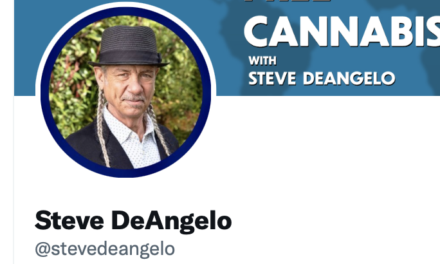On March 1 the incoming Attorney General, Merrick Garland, in response to questions from Senators, said that enforcing marijuana prohibition would not be a wise use of limited federal resources. Does this mean that Big Pharma is giving up and that we, the people, can let a thousand flowers bloom?
“Nora is an accomplished researcher with hundreds of scientific articles published in some of the field’s most prestigious journals. She is best known, perhaps, for her fierce defense of the brain-disease model of drug addiction and her impatience with those who disagree with her… Many scientists who study drugs, including some at NIDA, routinely overstate the negative impact that recreational drug use has on the brain, and that she essentially ignores any beneficial effects drug use may have. But the scientists don’t dare share this perspective with her for fear of repercussions that might negatively impact their ability to obtain grant funding, among other professional perks, from her Institute. To put this in perspective, NIDA funds nearly 90% of the world research focused on the drugs discussed in this book. Nora is a kingmaker.”
Hart challenges Volkow’s assertion that, “If early voluntary drug use goes undetected and unchecked, the resulting changes in the brain can ultimately erode a person’s ability to control the impulse to take addictive drugs.” He notes that “the first clause of this sentence seems to encourage caretakers to be paranoid about any potential drug use… The second clause is even more disturbing because it argues that there are inevitable brain changes in response to drug use that cripple the user’s self control.
Hart laments that “Unsubstantiated claims about alleged long-term brain changes have made their way into the DSM-V, the gold standard for classifying mental disorders.” He quotes the offending line in the Diagnostic Manual: “An important characteristic of substance use disorders is an underlying change in brain circuits that may persist beyond detoxification.” He observes, “The current lopsided and negative presentation of drug effects on the brain (has) serious consequence… Journalists write articles consistent with these half truths. Newspaper articles focus on negative outcomes. Films and public service announcements employ these distortions in their depictions of drug users.”
So the Earth keeps turning and since 2003 Trotsky’s great granddaughter has been America’s de facto Drug Czar! Her role at NIDA is to maintain the endless stall in the name of Science by dismissing as invalid any evidence showing that cannabis is safe and effective medicine… unless and until it is confirmed by placebo-controlled, randomized, double-blinded clinical trials. To placate would-be reformers (whose numbers among the citizenry and in Congress keep growing), Volkow testifies and cranks out articles like one she wrote for the Huffington Post in 2017, “Researching Marijuana for Therapeutic Purposes: The Potential Promise of Cannabidiol (CBD).” In it she called for “addressing barriers that slow clinical research” —a reference to CBD’s absurd status as a Schedule I substance.
The redundant phrase, “potential promise,” is laughably timid and misleading to the point of inaccuracy. Yes, there are many potential uses of CBD for researchers to explore. But the ability of cannabidiol to alleviate symptoms in a wide range of illnesses has been proven —determined, established, confirmed, made evident, QED— in many studies involving animals, several trials with human patients, and hundreds of thousands of cases monitored by physicians in the states where medical use is legal. CBD provides medical benefit. That is a fact, not a “potential promise.”
You can’t spell Stalling without Stalin





